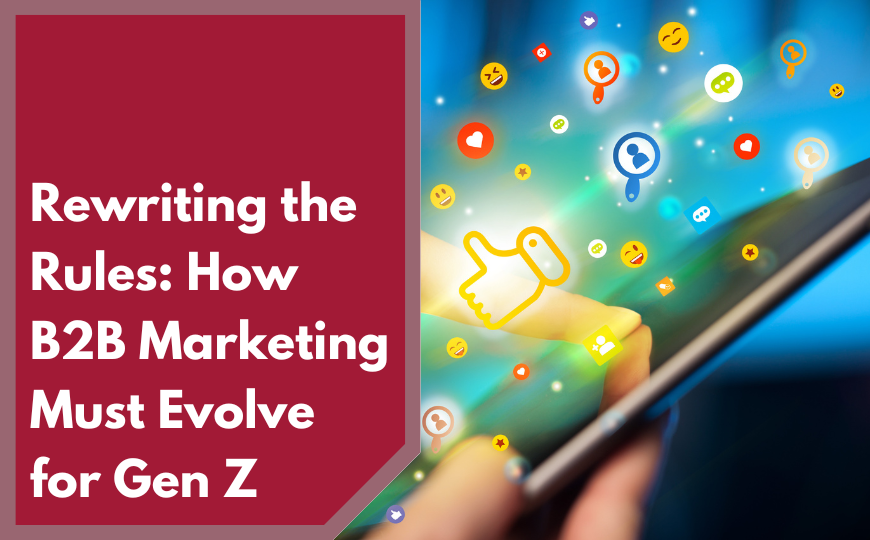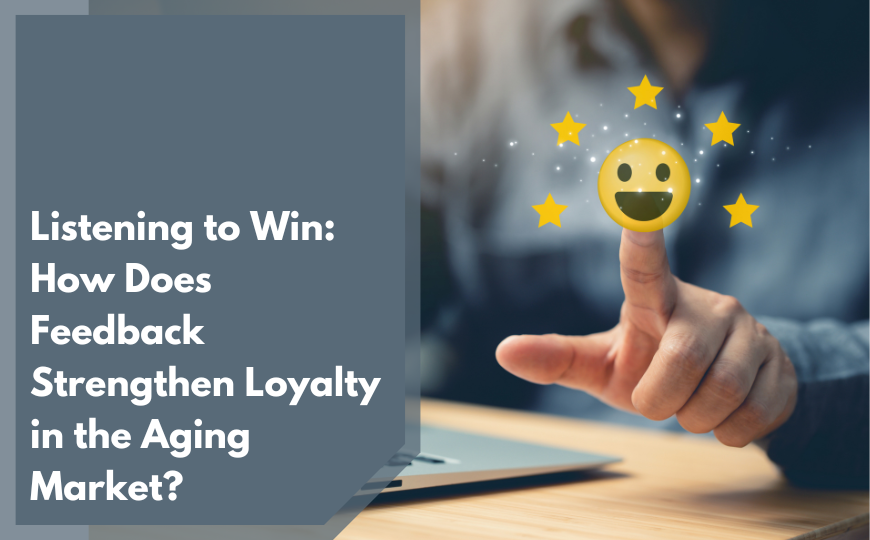B2B marketing strategies have been based on solid principles for years, but these methods are now falling short. As Generation Z rises as the new driving force in business decisions, companies must reconsider their approach. This shift isn’t about simply adding digital touchpoints or applying trendy social media tactics. It’s a fundamental change in how we understand B2B relationships, with marketing strategies needing to evolve to meet the demands of a generation rewriting the rules of engagement.
Gen Z Is Not What You Think
There’s a misconception that Generation Z is relevant only in B2C marketing. This cohort is known for its high level of digital fluency, preference for fast-paced, visual content, and desire for instant gratification. But here’s the truth: Gen Z is quickly infiltrating the B2B space—not as consumers but as decision-makers. By 2025, it’s expected that 27% of the workforce will be Gen Z. More importantly, this generation isn’t just seeking products or services; they’re demanding partnerships that align with their values and deliver on promises—values like transparency, innovation, and authenticity.
If your B2B marketing strategy isn’t already addressing Gen Z’s unique needs, you’re falling behind.
The Disconnect: Traditional B2B Tactics Aren’t Enough
Many B2B strategies still rely on tactics that appeal to older generations. Cold calls, lengthy email campaigns, and formal whitepapers may still resonate with Baby Boomers or Gen X, but for Gen Z, these methods feel outdated, impersonal, and disengaging. Why? Because Gen Z thrives on immediacy, engagement, and personalization. They expect interactions to be seamless, digital-first, and responsive.
In a world of instant interactions, immersive content, and real-time feedback loops, traditional B2B strategies simply don’t cut it anymore. Marketing teams relying on one-size-fits-all approaches will find themselves out of sync with a generation that demands authenticity, directness, and real-time engagement.
Digital Natives with High Expectations
One of the fundamental reasons B2B marketers must cater to Gen Z’s needs is that they’ve grown up in a fully digital world. This generation has never known a time without the internet, smartphones, social media, and constant connectivity. They’re used to seamless digital experiences, personalized recommendations, and rapid responses. When it comes to B2B transactions, these expectations don’t change.
Imagine a young Gen Z professional making a key purchasing decision for their organization. They’re more likely to turn to social media, product reviews, peer recommendations, or user-generated content than to a sales rep’s cold call or a corporate blog post. Traditional B2B websites—static, formal, and often overly complex—feel like relics in their mobile-optimized, responsive, and instantly accessible world. If your digital presence doesn’t meet these expectations, you’re not just missing an opportunity; you’re alienating your target audience.
Trust Is a Non-Negotiable
What truly sets Gen Z apart from other generations in the workforce is their approach to trust. Unlike Baby Boomers or Gen X, who often value authority and hierarchy in business, Gen Z values transparency, authenticity, and ethical responsibility. They expect the brands they engage with—whether B2C or B2B—to be open about their values, operations, and commitments. They want brands that walk the talk.
For B2B brands seeking to build relationships with Gen Z decision-makers, it’s about more than just offering a product or service. It’s about aligning with their values—whether that’s sustainability, diversity, or social justice—and demonstrating that your actions match your promises. A company’s story, its commitment to positive impact, and its transparency will shape its credibility in the eyes of Gen Z. If a brand can’t show authenticity, it will likely lose out to one that does.
Embrace the Power of Video and Social Media
Let’s face it: Gen Z isn’t reading long-form articles or downloading PDF reports. They’re consuming content via video, social media, and bite-sized, engaging formats. Video, in particular, is a game-changer in B2B marketing for Gen Z. Short, impactful videos—whether behind-the-scenes glimpses of your company’s culture, product demos, or thought leadership pieces—are far more effective than dry, written content.
B2B marketers need to rethink their content strategies to incorporate more video—especially on platforms Gen Z frequents, like LinkedIn, YouTube, and even TikTok. It’s not just about making videos for the sake of it; it’s about crafting stories that engage, educate, and entertain. When used effectively, video is one of the most powerful tools for building connections, and it can leave a lasting impression on Gen Z’s view of your brand.
Innovation and Agility: The New Norm
If there’s one thing Gen Z values above all, it’s innovation. They’re not content with old solutions; they want fresh, creative approaches to problems. They’re less impressed by tradition and more motivated by progress. B2B marketers who want to capture Gen Z’s attention must be willing to experiment, take risks, and pivot quickly in response to feedback.
Gone are the days of long product development cycles and marketing campaigns that take months to execute. Gen Z expects real-time, adaptive strategies that respond to changing needs and emerging trends. Agility is crucial, and B2B companies must be ready to innovate not just their products but their entire approach to customer engagement.
Conclusion: Gen Z Is Here to Stay
Adapting your B2B marketing strategy to meet the needs of Gen Z isn’t just a passing trend—it’s a long-term shift that will require fundamental changes in how businesses engage with their audience. As Gen Z continues to rise through the ranks of decision-makers, companies that fail to understand and cater to this generation risk falling behind.
B2B marketers must realize that the next wave of decision-makers is already here, and they’re not interested in outdated tactics or irrelevant content. If your strategy doesn’t speak directly to Gen Z’s values, expectations, and digital preferences, you risk losing out to competitors who are more attuned to their needs.
Adapting your B2B strategy to Gen Z is essential for staying competitive in an increasingly dynamic market. This generation isn’t waiting for brands to catch up—they’re already shaping the future of business. If your company isn’t in tune with that shift, you’ll soon find yourself left behind.






